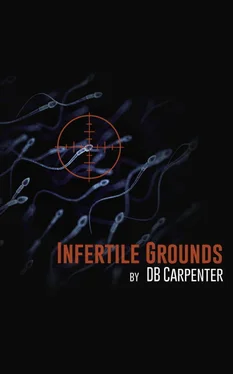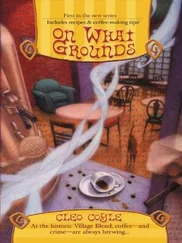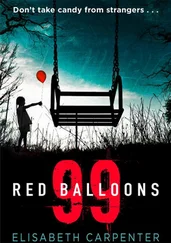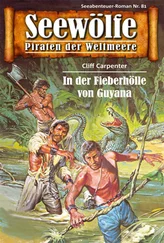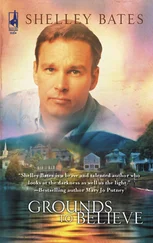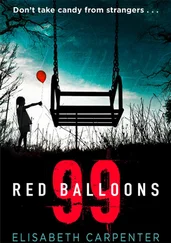“Put your hands in the air,” the voice said. What the hell? He had just been speeding.
The voice repeated the command, and Pell obliged. He watched in the mirror as the cop got out of his cruiser, his pistol drawn. This wasn’t right.
“Keep your hands where I can see them,” the cop said as he dropped the microphone and stepped toward the car.
The cop kept his pistol on Pell as he opened the car door with his left hand. Then he backed off. “Get out of the car – real slow.”
“What seems to be the problem, officer?” Pell asked. He knew damn well what the problem was. Carl Moscovitz surely had something to do with it.
He climbed out of the car. His arms were still over his head as the cop told him to turn around.
“Is this how you treat speeders?”
“Shut up,” the officer said. “There was an all-points-bulletin issued for your arrest twenty minutes ago. I don’t know what you did, but I’m glad that you’re here. It makes the day more interesting. Put your hands on the car.”
He started to drop his hands. This was it. His career at the FBI, the only real job he ever had, was about to end. Thrown out and unemployed, probably in jail – just where he wanted to be at 42 years old. His face flushed with anger. But if he were to be completely honest, he had known this would happen. As soon as he went to Harvard this morning he had set his professional demise in motion.
The cop patted him down and found his pistol in its shoulder holster. “What have we got here,” he said as he pulled it out.
“I’m an FBI agent,” Pell said. “There must be some mistake. My ID is in my coat pocket.”
The trooper pulled out Pell’s ID and examined it. “You must have done something real wrong,” he said. “They want you bad.”
Pell shook his head. “It’s got to be a mistake. I was up here working a case.”
“I’m sure it’s a mistake, Agent Pelletier; these sort of things always are, but I’ll let you all work it out on your own. All I know is that I’m bringing you in.”
He grabbed Pell’s right hand, twisted it behind his back, and snapped on a handcuff. As he started to pull Pell’s left hand behind his back, Pell spun around and put some of his extensive training to work. His left hand slapped the trooper’s gun so that it pointed harmlessly away, and then he drove his clenched fist into the cop’s throat, catching him squarely on the Adam’s apple.
The blow instantly immobilized the stunned officer. Pell grabbed his arm and spun around so that the trooper was behind him, and in one fluid motion flipped him violently over his back onto the pavement – a classic defensive move designed to get the opponent onto the ground, one he had practiced countless times. The grunting thud of the trooper hitting the ground was followed by the muffled sound of a gunshot.
The trooper’s face twisted in shock and pain. His eyes widened and his mouth opened, emitting a high-pitched screech. He had landed with his pistol behind his back and it had fired.
“Jesus Christ!” Pell exclaimed as he bent down next to the cop. “You’re going to be all right, buddy. I’ll call for help.”
He ran to the trooper’s car, picked up the radio and pressed the talk button. “A cops been shot,” he said into the transmitter and released the button. He had no time to decide what to say. Being involved in the shooting of a police officer, accidental or not, was not a good thing.
“Who’s this?” A voice squawked out of the radio.
“A cops been shot,” he repeated.
Silence. And then, “Identify yourself. This is a police frequency.”
“What does it matter who I am?” Pell screamed into the mic. “I’m telling you that there’s a cop lying in the middle of Route 43 with a bullet in his back. I’m using his radio to talk to you.”
Again silence. They would be dispatching all available units to this location, and they were also probably checking to see if anyone was patrolling out here.
Sure enough, the next thing out of the speaker was, “Possible officer down. Route 43. All units respond.” The broadcast message went out on a frequency that all vehicles could hear.
“Damn,” Pell muttered. Every local and state cop within twenty miles was about to converge on this piece of highway.
He glanced out the front window as the trooper fired. The bullet slammed through the windshield, catching him squarely in the right chest. The ensuing pain tore up and down his body. It was unlike anything he had ever experienced.
He screamed, half in pain and half at himself for not disarming the cop. His thumb involuntarily broadcast his howl to the police dispatcher and removed any thoughts of a hoax from that man’s mind.
The radio dropped from his hand as the trooper fired another shot. This one narrowly missed his head as it punched another hole through the windshield. He saw the shotgun in its cradle in the passenger seat and started to reach for it. He couldn’t do it – couldn’t take another lawman’s life again – no way.
The dispatcher’s voice came over the radio trying to get Pell to respond, as he opened the passenger door, and slid out onto the ground. Looking from under the cruiser, he could see that the cop still sat up, shakily, but up. On an adrenaline high, Pell made a run for his car. His chest was on fire. What had he done! If he didn’t get out of here now, he would be spending the rest of his life in a little jail cell.
A flurry of poorly aimed, convulsive shots chased him as he staggered to the car and climbed in, started it up, and sped away. In his rearview mirror he could see the cop trying to get another clip into his gun as he fell down onto the road on his back.
Prayer wasn’t something he did often but he mouthed a simple one several times, “Please don’t let him die.”
He easily doubled the posted speed limit as he sped along. He had to get off this road. Looking down at his blood-covered chest for the first time, he also knew that he had to stop the bleeding. His head reeled from the pain and his chest felt as though a pile of bricks were stacked on it. Was it just from the wound or had the bullet hit a lung. If it were the latter, Pell knew that without immediate medical attention, he wouldn’t have a lot of time.
12:57 pm Quincy, Massachusetts
Chris slipped quietly into his house. The shades were drawn. The silence was absolute.
“Hello?” He said softly.
No answer. He looped through the four rooms before climbing the stairs to the master bedroom. The door was ajar, and he had a horrific flashback to what had been going on last night. The room was a mess. But most importantly, Karen wasn’t there. He should have been happy with this, but as he stared at the clothes strewn on the floor and bed, he wasn’t. She had made one hell of a mess while she packed. He dropped down onto the edge of the bed and started to cry. He couldn’t imagine the pain going away – not anytime soon at least.
The wedding picture that he had smashed over her lover’s head lay on the floor in its shattered, bloody frame. He picked it up and looked at the happy couple standing in front of a fireplace at their reception. They were so young; their innocence and excitement for the future flowed from within them.
He snapped the frame in half and tossed it across the room.
If he could have turned back time, he would have done it. Just turn it back enough so that he wouldn’t have gotten home while his wife was messing around – play the happy fool.
He went downstairs, grabbed a bottle of Irish whiskey and a glass from the dry sink, and went into the living room.
The next few hours he flip-flopped from rage to grief only allowing himself a few drinks. He didn’t need to slip into some alcohol-induced fit and end up doing something he regretted.
Читать дальше
